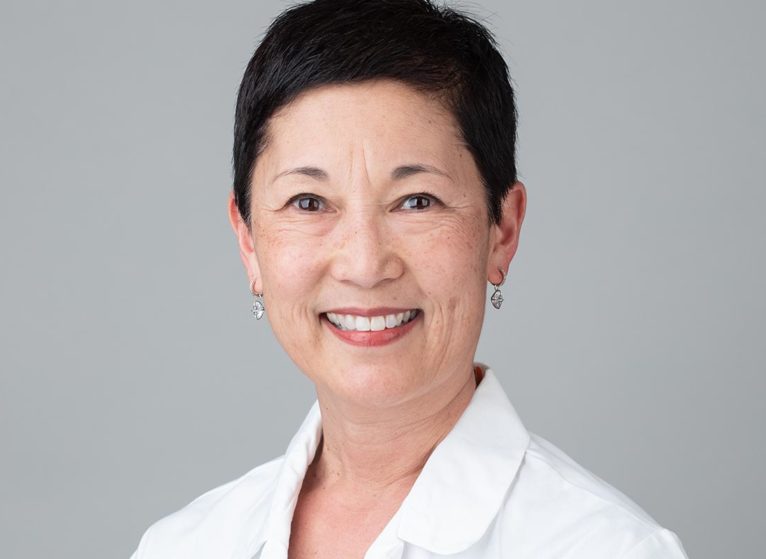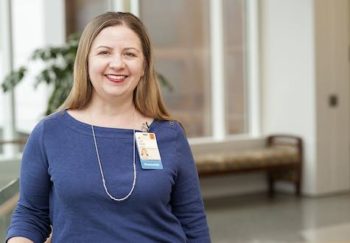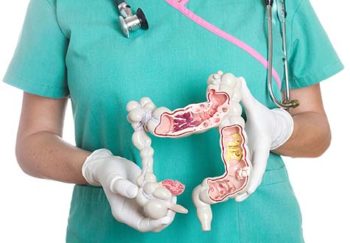A gastroenterologist — also known as a GI specialist or GI doctor — treats conditions affecting your digestive system. These include:
Meet Dr. Yoshida, a UVA Health Gastroenterologist
Cynthia Yoshida, MD, is passionate about colon cancer prevention. In fact, the National Colorectal Cancer Roundtable is recognizing her and just five other providers across the U.S. for their efforts to increase colorectal cancer screening. Yoshida works to increase access to screening for her UVA Health colleagues, patients, and under-resourced communities across Virginia.
Colorectal cancer often has no symptoms until it's advanced, which is why screening is so important. Yoshida and other colon cancer experts recommend beginning screening at age 45.
Get a Colon Cancer Screening
Talk to your doctor about the best colon cancer screening option for you.
We asked Yoshida to answer our 7 quick questions.
1. Why did you become a doctor?
My father was a pediatrician, and I used to go on rounds with him on weekends (way before HIPAA!). I met patients who “loved” my dad and parents who were so grateful that he was caring for their children. I remember being in awe of how he interacted with these sick kids.
He had an amazing work ethic but also found time for his four kids. One night he came home and plopped a jar on the dinner table. Inside was a very long tapeworm, passed from the gut of one of his patients. I wanted to be just like him.
2. Why gastroenterology?
I love the breadth of GI — esophagus to colon, liver, pancreas — but really it was the allure of endoscopy. During my internal medicine residency, even if I was on a non-GI rotation, I would sneak down to the endoscopy lab and watch Dr. Allan Cooke perform cases.
And I have been fortunate to have great mentors. Dr. Norton Greenberger was our chair of medicine and a gastroenterologist. He helped me to get a GI fellowship position at UVA a long time ago! And even when I got here I had Drs. David Stone and David Peura, two phenomenal clinicians and great endoscopists as my mentors/teachers.
3. What’s one thing about being a gastroenterologist that might surprise people?
Colonoscopy is not dirty — in fact the majority of the time, it’s very clean and incredibly fun! Throughout my (decades long!) career, I’ve been a part of amazing advances in endoscopy.
When I started in GI we had fiber optic colonoscopes and had to look through a small eyepiece on the scope (very dark and only the endoscopist could see the images). Today we have super bright xenon light sources with HD-quality video monitors and innovative tools that allow us to take out large polyps through a scope!
4. What’s the most exciting research happening in your field right now?
Artificial intelligence (AI) in endoscopy is being developed to increase detection of pre-malignant and malignant polyps in the colon. Deep learning can localize and identify polyps in real time, preventing missed lesions which could result in interval cancers.
Liquid biopsy — the ability to detect biomarkers, such as circulating tumor cells or circulating tumor DNA — in the blood may be important in the arena of colorectal cancer screening. So imagine getting your colon cancer screening through a simple blood draw!
5. Where did you grow up?
I was born and raised in southern California. I worked at Disneyland as my summer job in high school.
6. Who is your inspiration or hero?
My family has always been my inspiration. My paternal grandparents were farmers. And my mother and her family were interred at Hart Mountain Relocation camp during World War II.
Both of my parents were the first in their family to go to college. In Japanese culture we have a term “ganbatte,” which means to “do your best.”
7. What’s your favorite thing about working at UVA Health?
I love my job! I'm honored to come to work every day with smart, caring nurses and endoscopy techs who work hard to take great care of our patients.
So, I came back to UVA because I missed the camaraderie with other faculty and GI fellows. And I so appreciate the relationship I have with my patients -— because I work in a field of preventive medicine, I’ve had the remarkable good fortune to care for so many people in our community!
Colon Cancer Screening Guidelines
Unsure if you need a screening? Watch Yoshida and Andrew Wolf, MD, discuss the guidelines.



Where is your office located, any in Culpeper?
Mary, thanks for the question. Dr. Yoshida works at several of our clinics in or near our hospital in Charlottesville:
Endoscopy Monroe Lane
Digestive Health Center
Endoscopy Unit
Digestive Health at Primary Care Center
If you’re looking for a colon cancer screening in Culpeper, there are a couple of options. Your primary care provider can help you get a FIT test, an at-home test that looks for blood in your stool. Or if you want to get a colonoscopy, you can get one at Novant Health UVA Health System Culpeper Medical Center.